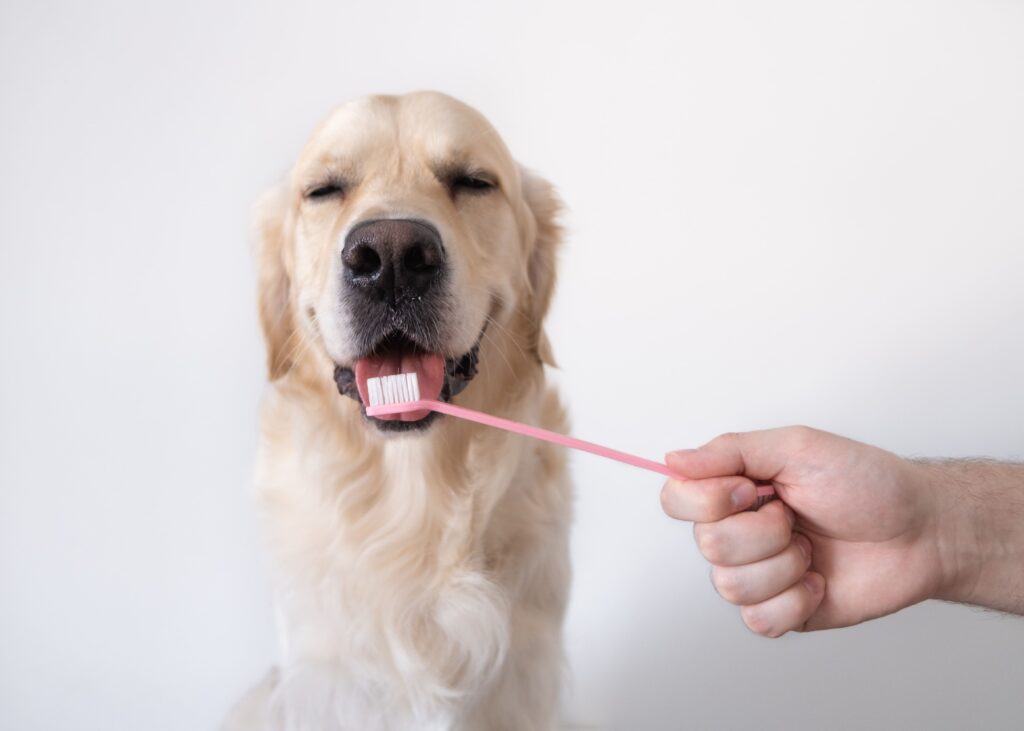How to Eliminate Dog Bad Breath
If you are a dog owner, you might have noticed that your furry friend’s breath doesn’t always smell like roses. In fact, it can sometimes be downright unpleasant. Dog bad breath is a common problem that affects many dogs of all ages, breeds, and sizes. But what exactly is bad breath in dogs, and why is it important to address it?
Bad breath in dogs, also known as halitosis, is a condition that occurs when there is an unpleasant odor coming from a dog’s mouth. It can be caused by a variety of factors, including poor dental hygiene, diet and nutrition, medical conditions, and habits or behavior. While bad breath in dogs may seem like a minor issue, it can actually be a sign of an underlying health problem.
In this blog post, we will explore the causes of dog bad breath, the signs and symptoms to look out for, and the importance of addressing it. We’ll also discuss prevention and treatment options, including home remedies, to help keep your dog’s breath fresh and their overall oral health in check. So, let’s dive in and learn more about bad breath in dogs.
Causes of Bad Breath in Dogs
There are several potential causes of bad breath in dogs, ranging from minor issues to serious health conditions. One of the most common causes is poor dental hygiene, which can lead to periodontal disease. When plaque and tartar build up on a dog’s teeth and gums, it can cause inflammation and infection, resulting in a foul odor from the mouth.
Diet and nutrition can also play a role in bad breath in dogs. Eating certain foods, such as onions or garlic, can cause temporary bad breath. However, a diet lacking in proper nutrition can lead to chronic bad breath, as well as other health problems.
Medical conditions and infections can also cause bad breath in dogs. These can include respiratory infections, diabetes, kidney disease, and liver problems. If your dog has persistent bad breath, it’s important to have them evaluated by a veterinarian to rule out any underlying medical issues.
Habits and behavior can contribute to bad breath in dogs. For example, some dogs may eat feces, which can cause a strong odor from the mouth. Additionally, some dogs may lick or chew on objects that harbor bacteria, such as shoes or toys, which can lead to bad breath.
Signs and Symptoms of Bad Breath in Dogs
As a dog owner, it’s important to be aware of the signs and symptoms of bad breath in dogs, as they can indicate underlying health issues. One of the most obvious signs is an unpleasant odor coming from your dog’s mouth. This odor can be caused by a variety of factors, including poor dental hygiene, diet, and medical conditions.
In addition to a foul smell, bad breath in dogs can also be accompanied by changes in the appearance of their gums and teeth. This can include redness, swelling, and bleeding, as well as loose or broken teeth.
Behavior changes can also be a sign of your dog bad breath. For example, your dog may become less interested in eating, chew on one side of their mouth, or paw at their face. They may also show signs of pain or discomfort when you touch their mouth or gums.
Other related symptoms of your dog bad breath can include excessive drooling, lethargy, and a lack of interest in play or physical activity. If you notice any of these symptoms, it’s important to have your dog evaluated by a veterinarian to determine the underlying cause and the appropriate course of treatment.
In summary, being aware of the signs and symptoms of bad breath in dogs can help you identify any potential health issues early on and take the necessary steps to address them.
Prevention and Treatment of Dog Bad Breath

Preventing and treating dog bad breath is essential to maintain their overall health and well-being. One of the best ways to prevent bad breath is to establish a regular dental hygiene routine. This can include brushing your dog’s teeth with a pet-friendly toothpaste, providing dental chews or toys, and scheduling regular professional dental cleanings with your veterinarian.
Proper nutrition is also important in preventing bad breath in dogs. Feeding your dog a balanced diet that meets their nutritional needs can help keep their teeth and gums healthy and prevent bad breath.
If your dog has persistent bad breath, it’s important to have them evaluated by a veterinarian. Depending on the underlying cause, treatment may include medication, surgery, or other interventions.
In addition to these measures, there are several home remedies that can help freshen your dog’s breath. These include homemade toothpaste and mouthwash recipes, natural remedies and supplements, and DIY breath fresheners. However, it’s important to note that these remedies should only be used in conjunction with professional veterinary care, as some may not be effective or could even be harmful.
Overall, taking steps to prevent and treat bad breath in dogs can help ensure their oral health and overall well-being. By establishing a regular dental hygiene routine, providing proper nutrition, seeking veterinary care when necessary, and exploring home remedies, you can help keep your furry friend’s breath fresh and their health in check.
Home Remedy to Eliminate Dog Bad Breath
In addition to professional dental care and veterinary treatment, there are several home remedies that can help freshen your dog’s breath. One option is to make your own homemade toothpaste and mouthwash using natural ingredients such as baking soda, coconut oil, and parsley. These ingredients can help neutralize odors, kill bacteria, and freshen your dog’s breath.
Natural remedies and supplements can also be effective in treating bad breath in dogs. For example, adding a small amount of apple cider vinegar or lemon juice to your dog’s water bowl can help balance their pH levels and kill bacteria. Giving your dog probiotics can also help promote healthy digestion and reduce bad breath caused by gastrointestinal issues.
Finally, DIY breath fresheners such as dog-friendly herbs and spices can be a quick and easy way to freshen your dog’s breath. Mint, parsley, and cinnamon are all natural ingredients that can help neutralize odors and freshen your dog’s breath.
However, it’s important to note that these home remedies should only be used in conjunction with professional veterinary care, as some may not be effective or could even be harmful. It’s also important to ensure that your dog is receiving proper dental care and nutrition to prevent bad breath from occurring in the first place.
Conclusion
In conclusion, your dog bad breath can be caused by a variety of factors and can indicate underlying health issues. By being aware of the signs and symptoms of bad breath and taking steps to prevent and treat it, you can help ensure your dog’s oral health and overall well-being.
Some of the key points to keep in mind include establishing a regular dental hygiene routine, providing proper nutrition, seeking veterinary care when necessary, and exploring home remedies as a supplement to professional care.
Above all, it’s important to emphasize the importance of maintaining good oral health in dogs. Poor dental hygiene can lead to serious health issues, including periodontal disease, infections, and even heart disease. By taking a proactive approach to your dog’s oral health, you can help prevent these issues from occurring and ensure a long and healthy life for your furry friend.
If you notice any signs or symptoms of bad breath in your dog, it’s important to seek professional veterinary care. A veterinarian can help identify the underlying cause and recommend the appropriate course of treatment.
Subscribe to our weekly newsletter below and never miss the latest article.








